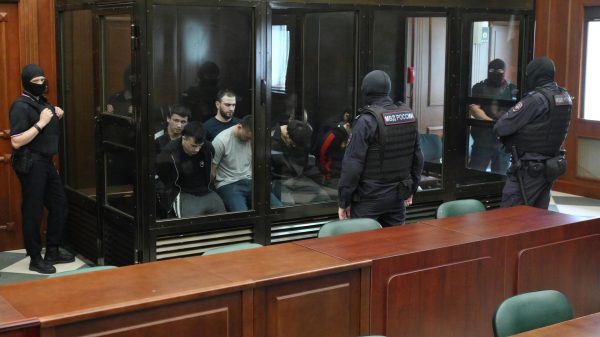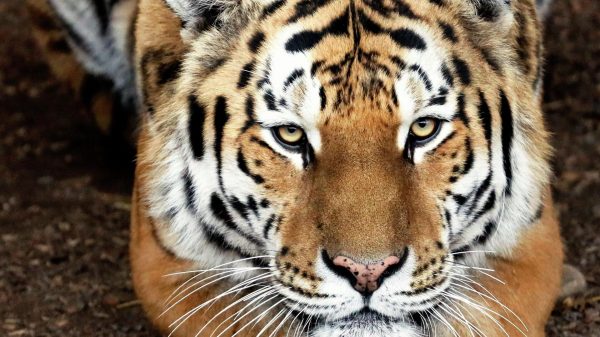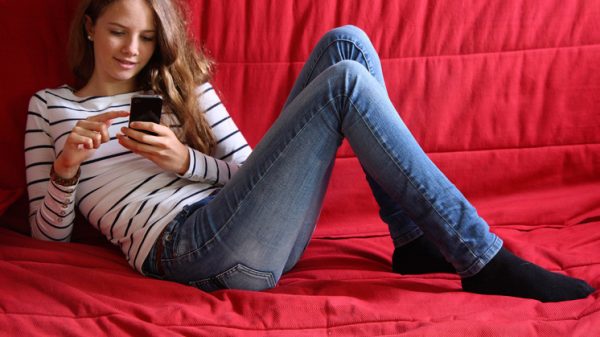
br>
Petersburg school student Nikita Volodin becomes one of the leaders of European pair skating, competing for Germany in duets with Minerva Haze. In an interview with Sport, the athlete explained how figure skating in the West differs from Russian, what surprises him in Berlin, what the Olympic champion from Russia is wrong about and when he will receive a German passport.
«In In Germany there is no pressure on the athlete, as in Russia»
— I constantly hear that there is a terrible shortage of partners in Russia. How did it happen that they didn’t find a girl for you?
— Yes, there are just different times in sports. When I first started training, there were a lot of available partners and a shortage of partners. And now there is neither one nor the other. And this is a problem, because all the good girls already skate in pairs. You either have to wait for the right moment, or take a girl from single skating, and I didn’t want to do that for the third time, because it takes a lot of effort and time. You yourself are not developing at this moment. Therefore, I no longer considered this option for myself.
— Was it scary to change the country?
— Certainly. This was actually the first question on the agenda when we first decided to skate together — why Germany? The situation was also difficult — it’s June 2022, it’s difficult to come to the country. The borders were closed, ticket prices were outrageous, especially through Turkey, when everyone rushed there. There were a lot of questions, but we decided to go to the end. By the way, I got to Minerva after all my shows only on the fourth time. The first time, at the border with Finland, the bus was canceled, and my tickets were burned out — I had to fly on a European airline, and they told me that the money would not be returned to my Russian card.
The second time they didn’t let me through, already at the Russian border. I think, okay, I’ll try through Murmansk, and from there to Norway. I’m going to Murmansk — they didn’t let me in there again, they said that I need to contact the military registration and enlistment office, since it forbids everyone to leave. And I was a student then, everything was allowed to me by law.
In the end, I returned to St. Petersburg, took a piece of paper and decided to go through Turkey, just to be sure, and only then did everything work out. So, as you can imagine, the decision to ride with Minerva was completely conscious. All these trips of mine took about two weeks, and in October we began to work fully.
In general, we expected that I would receive my release in December 2022, so that we could immediately go to the European Championships and start building up a rating. Unfortunately, this did not happen, because we did not know about the rules — that if you were in the Russian national team, you must be in quarantine for two years. But in general, now I realize that this is even better. We had time to skate, develop programs, and from this year we come out more ready. Last season we would have shown something raw.
— Did the Federation try to keep you? Judging by the words of the acting president of the FFKKR Anton Sikharulidze, now they have become more skeptic about the transitions.
— They tried to offer me partners in Russia when I was about to leave. But at that moment it was already too late, because I had made a decision. And the girls weren't even close to Minerva's level. Perhaps if there was someone good, I would consider this option. Still, it’s easier for me to train in my native St. Petersburg, with my family… But for results you always have to sacrifice something.
— Have you gotten used to Berlin yet?
— In principle, yes. This is the former GDR, there are a lot of Russian-speaking people there, which makes life more comfortable. I went to the dentist and he spoke Russian. I talked to him, and there is no longer the feeling that you are abroad. And in the group where we ride, half of the guys are Russian-speaking, so if there are any problems with communication, they help me.
I actually came to Berlin without knowing either English or German. But now I feel more or less comfortable, I got into the routine, spoke English, and learned it in a year. Now, however, I have switched more to German, it is my priority because of my passport. It needs to be studied more deeply.
— Was there anything surprising in Berlin?
— Firstly, the abundance of Russian speakers. Also, of course, nothing works here on Sundays, everyone has a day off. I'm still surprised by this. The conditions for athletes were also impressive — I heard that in Europe they don’t pay for anything, everything is expensive. And we have everything: massage therapist — please, spa — please.
The dormitory for athletes was surprising. Still, we know very well what kind of hostels we have in Russia, but here everything is completely different. Everything is new, everything is there. Every day the cleaning lady comes to make sure everything is clean. This isn't even a hostel, but something like a hotel. Each one has a separate room, there is one large kitchen, and everything in the refrigerator is in individual compartments. There is a washing machine with a laundry nearby, and a gym downstairs.
Well, the training process itself is completely different. There is no such pressure on the athlete. If you want, train, if you don’t feel well, rest. Not like we have in Russia: “This is your responsibility, you need to do it in any condition.” No, we, of course, can also take a day off, but let’s put it this way…
— Not welcome?
— Yes. When you are completely sick, with a fever, then yes. If you’re just exhausted, by no means, you need to continue working. In Europe, in this regard, they are more loyal to athletes. Moreover, I am already an experienced skater, I myself understand when to rest and when to increase. Although, you know, European figure skaters, it seems to me, sometimes neglect this loyalty and simply freeload. So everything has pros and cons.
— Are the conditions for training paid for by the German federation?
— I’m not very familiar with the details, because Minerva is involved in this. She is our manager, because she speaks fluent German and knows the system from the inside, because she has been skating for quite a long time. But as I understand it, the Berlin club and the federation add up and the required amount is obtained.
“Europeans never miss school”
— The ability to give yourself a little relief if necessary is the only difference between the European approach to sports and ours?
— Actually The most remarkable thing is that Europeans never miss school. Their schedule is adjusted to their studies. If on a certain day there are six lessons, for example, then they will first sit through them and only then go to the skating rink. Well, or during the break between classes they go for a ride. It's not like that with us. I remember they always told me to choose — study or training. Well, I went to the skating rink, of course.
In Russia, guys are a little lost in this regard if something doesn’t go according to plan in their career. Only a few win, we all understand that. But here no one gets lost, they get an education without problems, because they haven’t abandoned their studies since childhood. But this, in my opinion, can be considered both an advantage and a disadvantage. Ideally, you need to come to something in between — you should under no circumstances abandon school and live on the ice, like we do, and sports results should not be considered secondary.
— There is a feeling that it is easier for foreign athletes to adapt to normal life. For us, in this regard, it seems to me that it is a little more difficult — after sports it is not clear what to do next.
— Yes, after sports life ends. Here people immediately go to study and, in general, seamlessly integrate into everyday life. For example, the guys in our group are all studying somewhere, and they already know exactly what they will become in the future. Moreover, most often this has nothing to do with sports.
— Have you already learned to cope with failures in the European, let’s say, format?
— It seems to me that even in Russia I began to come to a calmer acceptance of the results. After all, this is a sport, anything can happen, and not everything is under your control. But nevertheless, sometimes self-criticism arises. Take, for example, our first Grand Prix stage in Finland, where we skated quite dirty. We won, yes, but it still felt like we didn’t complete something — that’s how we feel about not having the best performances.
And Europeans — they are more happy about everything. He won — and they are happy, no matter how they drove off. We still can’t do that. Many couples generally come just for the sake of participating, they like the atmosphere, they enjoy the fact that they are here. This, of course, concerns me too, but at the same time I’m going for results, to show myself. Ideally, we need to take the best from our approach and the European one — to remain charged for a good performance, but at the same time approach everything with calm. Excessive excitement will not lead to anything good.
“It was unrealistic to get to the European Championship from Russia”
— In Germany from are they already demanding results?
— Probably, this is still more of an internal feeling — we have already started to show results, we don’t want to slow down. Our season was on the rise; at the European Championships in Kaunas there was a first decline. And at the German Championships we were also very supported, a lot of people came, which is generally surprising — figure skating is not very popular here. But after our victory in the Grand Prix Final, people perked up a little, they often write words of support.
— At the World Championships you will be among the main contenders. What is it like to go from a show artist without clear prospects to a favorite of the largest tournaments in a couple of years?
— Yes, I’ll say more — even in principle, going to the European Championship from Russia was unrealistic for me, the competition was too great. And this, probably, to some extent even helps me get ready — here it is, my chance. With the same World Championship, I wouldn’t have believed it at all a year or two ago, I would have said that it was unrealistic. And now — here he is. So dreams do come true, if you dream well.
— How do you assess the level of European pair skating from the inside? I personally got the impression from the results of the European Championship that everything is not as bad as they say.
— I think the European Championship was definitely interesting to watch. All the pairs are very close, there was a real struggle, and it’s not like one pair, relatively speaking, constantly wins everything and brings 50 points. And in Kaunas the Italians won (Lucrezia Beccari/Matteo Guarise), from whom this was not expected at all. In Europe they are trying to protect athletes. Junior couples do only double twists, and they are deliberately told to slow down with triples on the ice — they say it’s dangerous, there may be injuries. And a month later, when I got into pairs, I was already teaching triple.
They are trying to minimize injuries and thus slightly hold back progress, which is why the level is lower. From juniors, few people learn the same triple throws, and this makes it more difficult for them in masters. We have a couple in Berlin, for example, who only after moving to the adult level began to learn the triple throw and triple twist — and I just can’t wrap my head around it.
But, of course, lower competition plays into their hands. In Russia you need to constantly be on your toes, constantly improve. One mistake and you are passed over.
“We are waiting for the Russian team to come out”
—Isn’t it offensive when criticism comes from Russia? Even your friend Sasha Gallyamov wrote in the cart: “I read a joke this morning, but didn’t understand anything: 199.19. What does that mean?” Obviously with a hint of the result of Beccari/Guarise.
— Well, the fact that Sasha could qualify for medals here is unambiguous. But judging purely by the technical set, then Minerva and I have about the same level as the Russian couples. We are also competitive. In my opinion, it cannot be said that Russian couples will now come out and start winning everyone, because the overall level is still growing.
No, no one denies, of course, that Russia is the standard of pair skating. Russia is generally a country of couples. But I also cannot say that the level in Europe is low. I read that European and international tournaments are interesting to watch even for spectators from Russia. People are watching, although many deny it.
— It also seems to me that European pair skating is even a little ahead of Russian in terms of performances. Are they fresher or more danceable? There is less chasing of elements.
— I agree, in Europe they don’t chase elements. If you open, say, the Russian championship, you will see about ten pairs there with equally heavy content. But here, if a couple doesn’t jump, she doesn’t insert it, she simplifies the technique. But more time is devoted to presentation.
I’ll emphasize again — the first three places in Russia are consistently gorgeous. But still in Russia there is this pursuit of elements — quadruple twists, throws. This is not the case in Europe now.
— At the same time, you and Minerva are one of the few who say that they want to compete with the Russian team.— Of course, we are preparing for the participation of the Russian team. We want to compete with the strongest athletes from all over the world, and Russian couples simply cannot but be included in this list. It’s just that now we kind of have time to prepare.
— Before moving to Germany, did you dream about the Olympics?
— This was and is my main dream. Now, of course, it all looks more real. We can say that this is no longer just a dream, but a kind of goal. There are chances and prospects, all that remains is to work a little. I’ve been skating since I was three years old, so I’ve been in the sport for 21 years. There are still a couple of years left to wait — nonsense.
— Are there any problems with obtaining citizenship?
— The Germans have everything very clear. I was told that I was required to pass German at level B1, there would be some minor questions on history, but with everything else there would be fewer difficulties. If we show good results, and the country is interested in us, everything will be resolved.
— Germany is a rather conservative country in this regard, as I read—it is very difficult to obtain a second citizenship there, often you have to give up the first one. Have you already figured out how to solve this issue?
— There will be no problems with this, because I am not going to renounce Russian citizenship. Because how is this possible — do I need to get a visa to come to my home? I won't be able to get used to this. Of course, this will be dual citizenship. Now in Germany this is easier; a law was recently passed with relaxations in this regard. So now everything depends on us.
























































Свежие комментарии